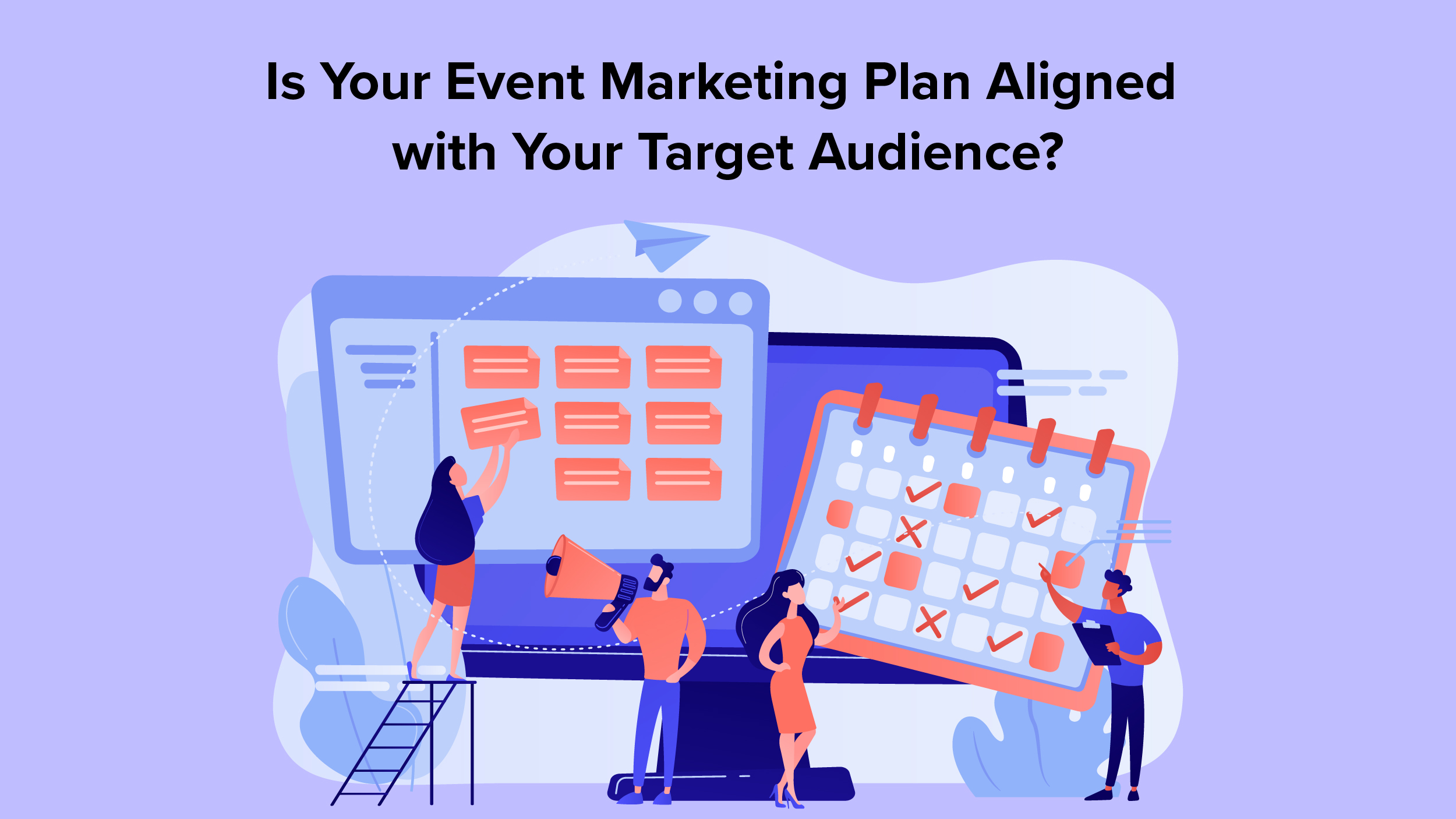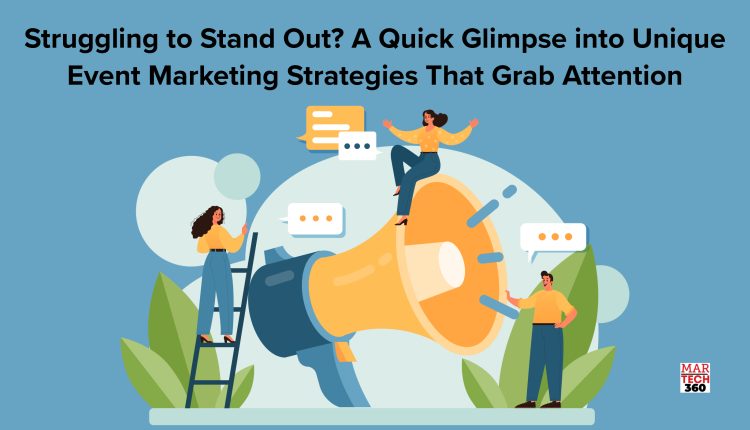Recall your most recent event experience.
Was it a trade expo or a conference? Why not consider participating in a small-scale seminar or an online launch event for a startup? Alternatively, you can also explore the option of signing up for a friendly 5K race or a golf outing.
Even though these events were all extremely different from one another, the brands or organizations who put them on shared a common objective: to engage and entertain participants, often known as potential buyers.
Event marketing offers significant benefits to businesses across various sectors, including technology, education, non-profit, medicine, and retail.
Events serve as valuable platforms that not only benefit the hosts and sponsors but also enhance the experiences and lives of all attendees. In contrast to most other marketing strategies, events inspire, educate, interest, entertain, and in some cases bring people together.
Let’s take a look at the event marketing definition, strategies, plans, and more.
What is Event Marketing?
Using an in-person or real-time engagement, event marketing is a marketing tactic used to promote a company’s name, products, or services. Online or offline events are both acceptable, and businesses are welcome to take part as hosts, co-hosts, participants, or sponsors. Event marketing is the best method of engaging your audience, showcasing your brand, and generating results—whether it be online or in person.
The significance of event marketing lies in its ability to enhance your credibility. Partners and clients have the opportunity to communicate with a brand directly, increasing their trust in it. Events provide prime networking opportunities as a result. 75% of business owners claim that the possibility to network at events is their main motivation for attending.
Events can be one of your most effective marketing tools if you manage them well.
What Are the Top Event Marketing Strategies That Drive Results?
A well-run event, whether it’s a trade fair, conference, product launch, or experiential engagement, can make a lasting impression on participants and produce worthwhile leads. The following event marketing strategies will help you maximize the impact of your upcoming event and meet your marketing goals.
Branding and awareness
The establishment and development of a company’s brand is one of the main motivations for participating in or hosting a marketing event. In today’s highly competitive landscape, it is crucial to differentiate oneself from the competition, considering the fierce nature of nearly all industries.
To associate with the host brand, obtain access to a highly targeted audience, or showcase your company’s personality, you may decide to take part in particular marketing events.
Customer engagement
Events enable you to humanize your business and forge closer ties with customers. Your customers are more likely to feel an emotional connection to your brand and be more willing to recommend it to friends, companies, and future customers if you immerse them in a distinctive and unforgettable experience.
You have a better chance of improving client retention and cultivating brand devotees by building meaningful interactions between your brand and your clients.
Lead generation
Conferences and industry events are effective ways to interact with your target audience, learn more about their problems, and aid in their decision-making.
You must have a strategy in place to collect the contact information of qualifying leads for post-event follow-up in order to streamline the event marketing purchase process. There are several ways to interact with prospects and gather their information.
- Speaking sessions
- Social Media
- Demo stations
The majority of businesses leverage social media as a means to engage with customers during an event.
Consider incorporating live tweeting or recording videos on Facebook, Instagram, or both platforms during your event. This can be a powerful strategy, considering that 55% of firms use social media to share images, 35% to amplify product announcements, and 73% utilize it to advertise specific events and features while the event is taking place. By leveraging live updates and engaging visuals, you can effectively promote your event, capture audience attention, and enhance your overall event marketing strategy.
Upselling customers
Upselling often follows naturally from informing your clients. As a soft sell for new product offerings, use demos or webinars.
It’s possible that your event staff will introduce new features that call for a consumer to upgrade or buy a different product offering if they pay attention to a customer’s pain points and then demonstrate how specific features answer their needs.
More trust is built when a business, whether in person or through a live webinar, demonstrates that it understands the needs of its clients and takes the time to discuss how its product or service may solve certain problem areas. There will appear to be fewer sales and more benefits from your upsell.
Looking for Event Marketing Agencies? Here Are 5 Standout Options!
Marketers understand the impact of live events in boosting brand recognition and driving sales. It has been observed that nearly 70% of attendees become customers after experiencing a live event, indicating the significant influence it has on building a strong connection with the brand. Regardless of the industry, whether it’s consumer brands, fashion, gaming, healthcare, or any other product or service, events have the power to ignite curiosity among potential customers.
But how can a business make a live event memorable and significant?
The first step in organizing a successful live event is to hire an event marketing company. Additionally, you are spending money to hire industry experts who can effectively manage matters on the company’s behalf.
Here are some of the most well-known and respected event marketing agencies:
- GPJ (George P. Johnson)
- Jack Morton
- Freeman
- Cramer
- GMR Marketing
These are just a few of the numerous reputable and well-known event marketing agencies out there. Each agency is highly recognized in the world of event marketing as it brings its own distinctive approach as well as expertise to the table.
Is Your Event Marketing Plan Aligned with Your Target Audience?
 Let’s now discuss how you can carry out your upcoming event. A marketing strategy for your events should be distinct from other business-related activities.
Let’s now discuss how you can carry out your upcoming event. A marketing strategy for your events should be distinct from other business-related activities.
It’s a good idea to outline your event marketing as a stand-alone campaign strategy, however, you can cross-promote (i.e., publish event information on company social media and vice versa).
Here are some questions to consider as you develop your subsequent event marketing plan.
- What SMART targets do you have? How much can you spend?
- What is the timetable, brand, and theme of your event?
- To whom are you advertising? Where will you find them?
- What is your strategy for managing and creating content?
- What is the schedule for your event marketing?
- How will you market and promote the event?
- How will the success of your event be determined?
Get Started with Event Marketing
An event requires a lot of planning and execution. But if you take a “snackable” approach to it, you’ll be organizing your first event in no time.
Event marketing might be the answer for you — and the most entertaining for your audience — whether you’re looking to attract new clients, expand your contact list, or raise money for your nonprofit.


Comments are closed.